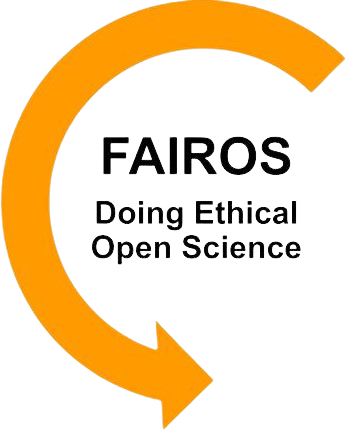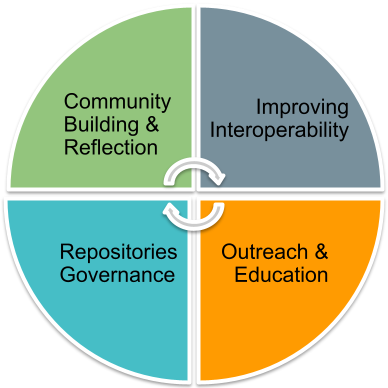We are creating a community-based network focused on facilitating dialogue and collaboration among communities and individuals who are vested in different forms of environmental data about the past, including their cultural and natural provenance and stewardship. We actively reflect on Western scientific approaches to open Quaternary science, and aim to facilitate cross-cultural dialogue across disciplinary, professional, and personal cultural backgrounds and traditions of participants.
Activities
We have organized a webinar series for experts in informatics to offer lessons to our community. Topics so far have included
- a series of introductions to Quaternary databases,
- an overview of the past and present intertwining of paleontology with structures of domination, and
- a guide from LocalContexts on using their cultural metadata fields.
Click here to learn more.
We meet yearly in-person to advance project aims, with focused time for group reflection on how to think together about implementing ethical open science in our data ecosystems, furthering all our aims. All symposia will include activities specifically devoted to advancing FAIR and CARE principles, in order to help set desired professional norms and provide examples of how CARE implementation can be advanced.
Led by Lieberman, LeFebvre, Thomer, and Balk, we developed a structured self-reflection tool to engage in a deep-dive reflection about ethical open science, FAIR, and CARE within both our personal scientific practice and within the policies of our organizations. We expect that our answers to these questions will change over time. The purpose of this self-reflection is to gain an initial honest assessment of where we are as practitioners and where our repositories are now in terms of implementing the FAIR and CARE principles in our scholarship.
We have begun a reading group in order to learn together about a variety of topics relating to the intertwining of our repositories with legacies of colonial violence. Readings so far have included, among others,
- Raja et al. (2022) on sampling bias resulting from parachute science in paleontology
- Tuck & Yang (2012) on the use and abuse of the language of decolonization, and
- a draft IEEE standard for recording Indigenous data provenance.

